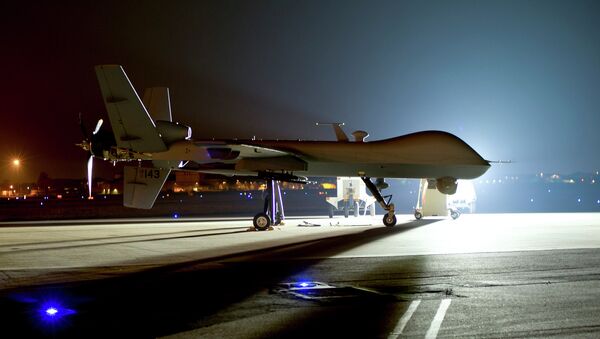The Defense Security Cooperation Agency (DSCA), the Pentagon’s agency for handling the Foreign Military Sales program, announced on Tuesday the State Department had approved the potential $600 million deal.
According to DSCA, the sale would include four “weapons-ready” Reaper drones and four ground control stations for flying them - two mobile, two fixed - as well as a slew of related spare parts and other equipment. The unmanned aerial vehicle (UAV) is built by General Atomics.
“The capability is a deterrent to regional threats and will strengthen the recipient’s self-defense. The recipient will have no difficulty absorbing these systems into its armed forces,” the DSCA said. “The proposed sale of this equipment and support will not alter the basic military balance in the region.”
However, the deal is not final until approved by lawmakers in both Washington and Taipei.
When reports of the potential deal first emerged in August, Beijing was furious, denouncing the deal as a violation of the One-China Principle. China regards Taiwan as a province in rebellion and US aid to Taipei as interference in China’s internal affairs. The US switched its recognition of the legitimate Chinese government over from Taiwan to China in 1978, acknowledging the People’s Republic of China had defeated the older Republic of China and won the civil war in 1949.
The news also comes on the heels of a set of US Air Force MQ-9 operators being spotted wearing unit patches that showed a Reaper drone with a grim reaper emblazoned on the wing soaring over a map of China. The editorial staff of the Global Times, a paper operated by the Communist Party of China, blasted the move as “an extremely arrogant provocation,” but noted that Chinese air defenses can easily down the UAVs.
While the government in Taipei has historically maintained its legitimacy as the Chinese government dating back to 1912, the coming to power of Taiwanese President Tsai Ing Wen in 2016 signaled a shift in attitude, with her faction of the Democratic Progressive Party being more favorable to declaring Taiwan is an independent nation from China. Beijing has promised if this happens, there will be war.
The US has put forward several huge weapons deals with Taiwan in recent months, including $1 billion in long-range cruise missiles, $436 million in mobile rocket artillery and associated weapons, $2.37 billion in specialized rocket artillery that fires anti-ship missiles and $8 billion in F-16V “Viper” advanced interceptor aircraft.

